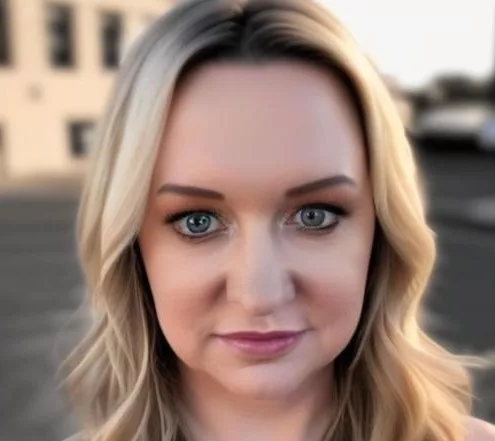Key Takeaways
- Gabapentin and Lyrica are medications commonly prescribed for nerve pain, seizures, and related conditions.
- Lyrica, a brand-name drug, absorbs faster and is more potent than Gabapentin, a generic medication.
- Choosing the proper treatment depends on your medical condition, side effects, and other factors.
Introduction
Gabapentin and Lyrica are two medications often prescribed to help manage nerve pain and seizures. Both belong to the same class of drugs and work by calming overactive nerve signals in the body. But while they share similarities, these medications have key differences in how they work, how they’re taken, and their side effects. Understanding these differences is crucial if you or a loved one are considering these medications. In this article, we’ll compare Gabapentin and Lyrica to help you make an informed decision and highlight why consulting a doctor is essential.What Are Gabapentin and Lyrica?
Gabapentin and Lyrica belong to a class of medications called gabapentinoids. These drugs target nerve pain and help control seizures by calming brain and spinal cord nerve activity. Gabapentin is a generic medication often sold under the brand name Neurontin. It’s widely used because of its affordability and effectiveness. Lyrica, on the other hand, is the brand name for pregabalin. It’s available in an extended-release version known as Lyrica CR, which allows for fewer daily doses. Unlike Gabapentin, Lyrica is a controlled substance due to its potential for dependency.What Do Gabapentin and Lyrica Treat?
Both Gabapentin and Lyrica are used to treat a variety of conditions related to nerve pain and seizures. These include:- Neuropathic pain caused by diabetes (diabetic peripheral neuropathy).
- Postherpetic neuralgia, a complication from shingles.
- Seizures as part of a broader epilepsy treatment plan.
- Fibromyalgia is a condition causing widespread pain and fatigue.
- Pain associated with spinal cord injuries.
Key Differences Between Gabapentin and Lyrica
While both drugs are similar in how they work, there are important differences:- Absorption and Onset: Lyrica is absorbed faster into the bloodstream than Gabapentin. This means it starts working quicker, often within an hour, providing faster pain relief. Gabapentin takes longer to take effect, requiring consistent dosing to maintain therapeutic levels.
- Dosage: Due to its slower absorption, gabapentin typically needs to be taken multiple times a day. Lyrica, especially the extended-release version, is often taken once or twice daily, which may be more convenient for some patients.
- Controlled Substance Status: Lyrica is classified as a Schedule V controlled substance due to its potential for misuse or dependency. Gabapentin is not federally classified, though some states monitor its use closely.
- Side Effects: Both drugs can cause side effects like dizziness, drowsiness, and weight gain. However, Lyrica’s faster absorption may lead to a higher risk of certain side effects, such as hand and foot swelling. Serious side effects for both drugs include difficulty breathing and severe allergic reactions.
Similarities Between Gabapentin and Lyrica
Gabapentin and Lyrica share several similarities:- Both are highly effective for managing nerve pain and controlling seizures.
- They work by calming nerve signals, which helps reduce pain and prevent seizures.
- Both medications can cause side effects like fatigue, dizziness, and difficulty concentrating.
- Drug interactions can occur, especially with other sedatives, alcohol, or medications that affect the central nervous system.
Risks, Withdrawal, and Switching Between Gabapentin and Lyrica
Both Gabapentin and Lyrica carry risks if misused or discontinued abruptly. Stopping these medications without medical guidance can lead to withdrawal symptoms such as anxiety, insomnia, and nausea.Switching between Gabapentin and Lyrica:
If one medication is ineffective or causes intolerable side effects, your doctor may recommend switching to another. This should be done gradually and under close supervision to minimize withdrawal symptoms and ensure proper dosing.Dependency risks:
Lyrica’s classification as a controlled substance highlights its potential for dependency. Patients with a history of substance misuse should inform their doctor before starting treatment.Which Medication Is Right for You?
The choice between Gabapentin and Lyrica depends on several factors:- Medical condition: Lyrica may be better for fibromyalgia or conditions requiring faster pain relief.
- Cost: Gabapentin is more affordable, making it a preferred option for many.
- Side effects: Some patients may tolerate one drug better than the other.
- Lifestyle: Fewer daily doses of Lyrica may be more convenient for people with busy schedules.
Conclusion
Gabapentin and Lyrica are valuable medications for managing nerve pain and seizures. While they share many similarities, their absorption, dosage, side effects, and cost differences make them unique. Choosing the proper medication requires a personalized approach guided by a healthcare professional. If you or someone you know is struggling with substance abuse or dependency on prescription medications, help is available. Call Virtue Recovery Killeen at 254-434-6764 to speak with compassionate professionals who can guide you toward recovery and a healthier future.FAQs About Lyrica vs Gabapentin Drug Interactions
What Is Gabapentin Used For?
Gabapentin is used to treat nerve pain, postherpetic neuralgia, and seizures.What Is Lyrica Used For?
Lyrica treats nerve pain, fibromyalgia, diabetic peripheral neuropathy, and seizures.What Are the Main Differences Between Lyrica and Gabapentin?
Lyrica absorbs faster, requires fewer doses, and is a controlled substance, while Gabapentin is a generic, lower-cost option.Can You Switch Between Lyrica and Gabapentin?
Switching should only be done under medical supervision to avoid withdrawal symptoms and ensure the correct dosage.What Are the Common Side Effects of Lyrica and Gabapentin?
Common side effects include dizziness, drowsiness, and weight gain. Serious side effects may include swelling, difficulty breathing, and allergic reactions.What Are The Similarities and Differences Between Gabapentin and Pregabalin?
Gabapentin and pregabalin are both anticonvulsants used to treat nerve pain and seizures. Still, pregabalin is more potent, has faster absorption, and is a controlled substance due to its potential for abuse.What Are The Dosages That Lyrica and Gabapentin Come In?
Lyrica (pregabalin) is available in dosages ranging from 25 mg to 300 mg capsules, while gabapentin is available in 100 mg to 800 mg capsules or tablets.Is Lyrica or Gabapentin More Effective in Pain Control?
Lyrica (pregabalin) is generally considered more effective for pain control due to its higher potency and faster onset, though individual responses may vary.How Does the Family and Medical Leave Act (FMLA) Affect My Ability to Take Gabapentin or Lyrica for Medical Conditions?
The family and medical leave allows employees to take necessary time off for serious health conditions. If you are prescribed Gabapentin or Lyrica, the inability to manage symptoms may qualify for leave. Understanding your rights under the FMLA can help ensure you receive the treatment and recovery time you need.
Resources
https://medlineplus.gov/druginfo/meds/a694007.html https://www.nhs.uk/medicines/gabapentin/about-gabapentin/ https://www.webmd.com/drugs/2/drug-14208-8217/gabapentin-oral/gabapentin-oral/details- About the Author
- Latest Posts
Nicki Lugo is currently employed as Clinical Director at Virtue Recovery Center in Las Vegas. Nicki is a licensed clinical professional counselor (CPC) in the state of Nevada and a licensed associate counselor (LAC) in the state of Arizona. She is also a licensed clinical alcohol and drug counselor (LCADC) in Nevada. Additionally, Nicki has specialized training in treating trauma and is a certified clinical trauma specialist (CCTS).
Nicki has earned a Master of Science degree in Psychology with an emphasis in Behavioral Health from the University of Phoenix and a Master of Science in Professional Counseling from Grand Canyon University. Currently, Nicki is pursuing a Doctor of Philosophy (PhD) in Counseling Education and Supervision at Grand Canyon University. Nicki’s research interests include the use of Positive Psychology interventions with dual diagnosis clients. Nicki hopes to contribute to the body of knowledge in treating substance use disorders.
Nicki’s long-term career goals include advancing in leadership roles within Virtue Recovery Center which is a quickly growing substance use disorder treatment facility. She hopes that one day her research and advocacy will help to save the lives of those who have been affected by substance use. She likes to say that advocacy is her passion and leadership is her superpower.









